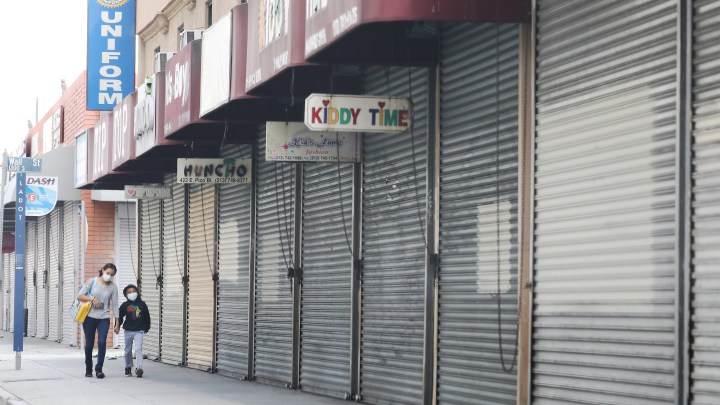
It’s official: We’re in a recession

It is now official — the National Bureau of Economic Research has declared that economic activity peaked in February of this year. That means the expansion that started in June of 2009 is now over, and we are officially in a recession.
In the past, the NBER has watched an economic decline for much longer before officially declaring a recession. But Teresa Ghilarducci, professor of economics and policy analysis at The New School in New York City, said this is no ordinary contraction.
“It would have been a bit ridiculous to wait to tell the world what we already knew and felt,” she said.
The NBER said the magnitude of production and employment declines warranted the official designation. Ghilarducci said what’s different this time is how quickly we went from full employment to double-digit rates of unemployment.
“It took two years in the 1930s to get to the kinds of rates that we’re seeing now,” Ghilarducci said.
In previous recessions, economist Peter Orazem at Iowa State University said unemployed people jumped to other jobs in less-affected industries. But this has been a nearly universal shutdown.
“That’s going to make it much more difficult for people to shift from one job to another as a way of surviving the economic consequences of the pandemic,” Orazem said. That could make it even harder to recover, he said.
There’s a lot happening in the world. Through it all, Marketplace is here for you.
You rely on Marketplace to break down the world’s events and tell you how it affects you in a fact-based, approachable way. We rely on your financial support to keep making that possible.
Your donation today powers the independent journalism that you rely on. For just $5/month, you can help sustain Marketplace so we can keep reporting on the things that matter to you.


















